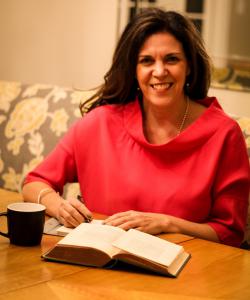Many American schools and universities have lost their sense of purpose and consequently fail to transmit meaning to the next generation or form responsible citizens. The crisis of American education has led to a reduction of knowledge and a crisis of anxiety and despair plaguing so many young people. In our current climate of increasing social and political divisions, along with rising depression and anxiety young adults, why should educational institutions embrace a liberal arts mission over a social justice mission or a purely scientific-technical mission? What is the role of Christian faith, tradition, and rituals in the context of a liberal arts educational mission?
Good education promotes human happiness, freedom, and a robust notion of culture that includes the aesthetic dimension of the human person open to encountering the sacred in all forms of knowledge. That’s why understanding the philosophical and theological underpinnings of many of today’s educational institutions and culture is crucial to building new educational ventures that support human freedom in all its dimensions. Although much has been written about ideological influences in education that undermine commitments to human freedom as grounded in classical Greek and Judeo-Christian anthropology, less has been written about how to respond to Neil Postman’s argument in Amusing Ourselves to Death that our minds are being dumbed down by forms of entertainment that are seen as news or education. Although the student mental illness crisis has been well documented, less is known about how to guide students toward developing aesthetic virtues like the contemplation of beauty.
In this session, participants will learn about four key thinkers whose ideas have shaped educational policy and pedagogy: the pragmatist John Dewey, the Marxist Paolo Freire, the Christian philosopher Jacques Maritain, and the Catholic priest and educator Luigi Giussani.
Some of the key questions this session addresses include:
• What are some key differences in understandings of the human person across pragmatist, Marxist, classical liberal, and religious approaches to education?
• What implications do those differences have for the curriculum and methods of teaching?
• What is a classical liberal arts approach to education?
• Why is freedom of conscience important in education?
• How are beauty, love, and friendship related to truth-seeking?
• Can experiential education and tradition be reconciled?
• How can student moral character be formed (or deformed) in the classroom?
• What does the Christian tradition in general and the Benedictine tradition in particular offer to contemporary education?
Recommended Readings
Margarita Mooney Clayton, "Graced Imagination: Recovering True Creativity in the Age of Authenticity." Published online by Public Discourse, May 13, 2024. Graced Imagination: Recovering True Creativity in the Age of Authenticity - Public Discourse (thepublicdiscourse.com)
Margarita A. Mooney, “Educating the Human Person.” Published online by Real Clear Policy, October 4, 2019. https://www.realclearpolicy.com/articles/2019/10/04/educating_the_human_person_111282.html
Margarita Mooney, "The Poetic Body of the Benedictine Charism." Published Online by Church Life Journal. https://churchlifejournal.nd.edu/articles/the-poetic-body-of-the-benedictine-charism/
Margarita A. Mooney, “Tradition and Authority in the Luigi Giussani’s Educational Method.” Published online by Public Discourse, April 15, 2019. https://www.thepublicdiscourse.com/2019/04/50901/ June 23, 2021.
Margarita Mooney Suarez, "How Can Education Unite Us Rather than Fragment Us? Mystery is greater than Ideology." Published online by Public Discourse, December 16, 2021. How Can Education Unite Us Rather than Fragment Us? - Public Discourse (thepublicdiscourse.com)
